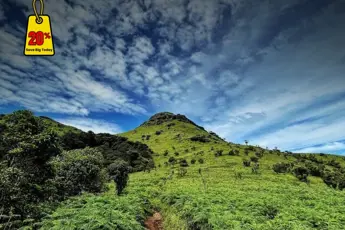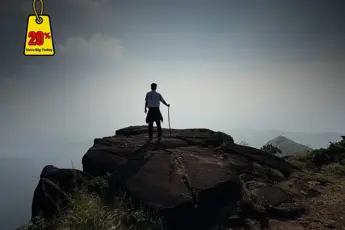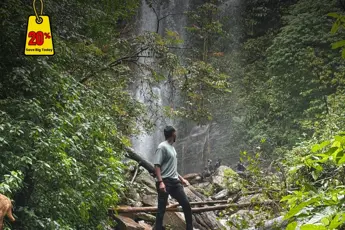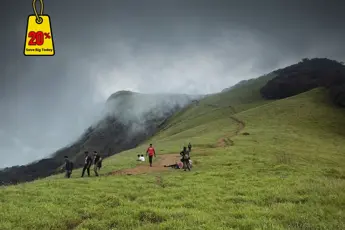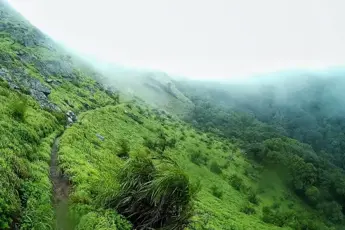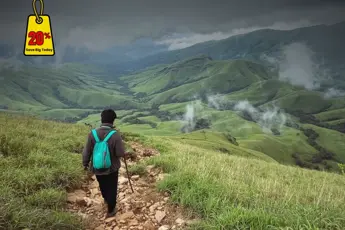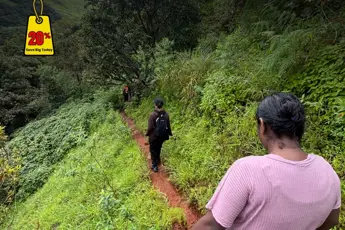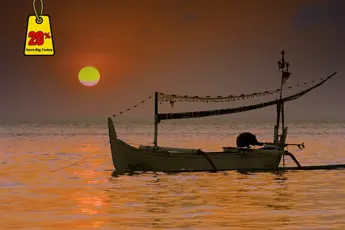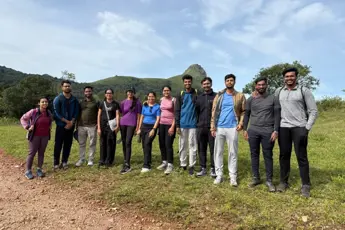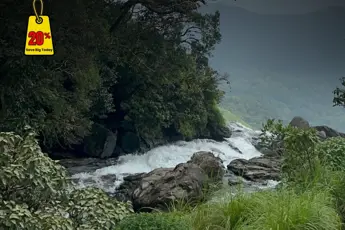
India is a multi-country-one, never geographical or cultural, but even experiential. It has its picture-postcard Himalayan hill stations, beaches and monuments, so there is something for every sort of traveller. And the icing on the cake? The fact that you won't be draining your piggy bank. Here in this travel guide, we will be showing you expert tips and advice that will render you capable of travelling anywhere in India at the cheapest fares and enjoying every second of it to its maximum.1. Plan but Stay FlexibleWhen planning for any trip, you should plan but remain flexible. Research your destination, book a rough itinerary, and book necessities such as lodging and permits beforehand. Don't overdo it, however, bypass space for the unexpected pleasures or when you have to realign according to weather, transport availability, or the natives' schedule. Flexibility allows one to realign and optimise last-minute activities that are usually the trip's best experience. Maintain a blend of structure and flexibility, and one develops trouble-free travel with a maximum level of adventure. Whatever one might perhaps refer to that - pausing to look at a view or getting off script - flexibility can offer more fulfilling travel.2. Choose Frugal DestinationsChoosing frugal destinations is one smart way of travelling more often than not, without shelling out a lot of money. Choose destinations that are inexpensive or offer cheap things. They tend to share the same natural beauty, landmarks, and outdoor adventure sports as the pricier ones, but at a seriously small fraction of the price. Try travelling out of season, to less-visited towns, or to places where food is inexpensive, lodging is low-cost, and transportation is affordable. Budget travel is not a compromise, it's an exercise in being clever. A little planning and research do all the magic in getting things done without emptying your bank.Rishikesh – Adventure sports and spiritual journeyHampi – Ruins of the past and backpackers’ spiritKasol – Budget stays and hippie centre of HimachalGokarna – A less expensive and less touristy alternative to GoaPondicherry – Desi French countryside, but on a shoestring budget3. Go in the off-season of the yearOff-season travelling within the year will minimise your expenses and keep you away from being among the crowd. Off-season or shoulder-season travel, that is, the off-season tourist season, will tend to cost less for air travel, accommodations, and site visiting. A good case in point is travelling to beach resorts during the rainy season or hill resorts during spring and autumn seasons, and having wonderful bargains. While everyone does not wish for pleasant weather, saving money on tranquil demonstrations is worth everything. Scout high seasons for your home where you are travelling, and be ready. With little planning time and a lazy schedule, you could have fantastic holidays without punching a hole in your pocket.4. Holiday travelTravel during festive seasons can pack your holiday with thumping cultural happenings, eccentric rituals, and indigenous festivals. Festivals give tourists an insight into the heritage of a place, which can vary from native music and festive parades to the natives' food and traditions. It is advisable, nonetheless, to book your accommodation and transport in advance, since with the higher demand, the fare will be higher. Pay attention to how festivals impact business working hours or travelling to a place. Holi in India, Brazil's Carnival, or Oktoberfest in Germany - a visit during one of these festivals here will be an experience and a sense of belonging somewhere.5. Cutting costs on accommodation through overnight travelOvernight travel is one of the cost-effective methods of saving on accommodation time and money. A bus, train, or overnight flight saves time and money on accommodation as you're sleeping overnight between distances without paying the overnight stay charge at a hostel or hotel. Budget travellers or those with tight timetables use it best. Opt for comfortable and safe trips and pack essentials of a travel pillow, eye mask, and earplugs to sleep well. Fewer nights than an overnight in a hotel, overnights are more value for money and convenient to stay.6. Be a part of India's new hostelBooking a room in India's new hostels is the most ideal option for budget and social travel with home comforts. Zostel, Hoshtel99, and The Hosteller in Kochi, Pune, and Udaipur are the hostels offering lively ambience, style-savvy amenities, and creative decor. The hostels usually include common lounges, rooftop cafes, co-working areas, and planned activities, ideal for freelancers or backpackers. In Bir and Varanasi, hostels like The Hosteller Bir and Mad Squad have insider knowledge and hassle-free entry to nearby attractions or adventure destinations. Hostel stay offers affordability and a shared experience.7. Ask for a discountThe majority of Indian hotels sell seasonally with significant discounts at certain times of the year when they are not as busy. When visiting off-season, it is always advisable to ask at reception whether or not there is any discount to be had, whether this means a low price or a bargain on a better class of room. The same with five-star hotels – again, they all have variable room rate prices to look at online. Ring in on the day at reception also for an even cheaper price, go early evening, say, when some of the late arrivals are just arriving; haggle on the room here.8. Haggle (but not too much)Haggling is an effective method of negotiation for a cheaper price, but with decency and respect. Begin by asking nicely if they have any special discounts or promotions, particularly on longer stays, group reservations, or travelling during off-peak seasons. Be respectful and courteous in asking for them, ready to pay a reasonable price according to your estimation or budget. Do not be overbearing or try to push so hard that you freeze or get the seller into rejection mode. Remember that haggling needs to be a pleasant exchange and not a fight. Diplomatically, you can negotiate a decent bargain.9. Bargain the fare before you leaveIt is always best to agree on the fare in advance, especially when one takes the local auto-rickshaws, local taxi, or private car, where fixed fares do not exist. Always inquire about the fare in advance from the driver and request that he quote you so that later you will be free from doubts. If it's possible, make rough estimations from the internet or a local person so that you will have some sort of approximate expectation. Meter by meter, if at all, or pay something reasonable according to what you have estimated. It's a little courtesy that will keep you from overpaying, escape a battle at the end of your journey, and enhance your ride.10. Clean your waterFiltering your water on the road is a green and clean practice to stay healthy and minimise plastic use. Other countries' tap water is not potable, and a filtered water bottle or individual purification kit, such as UV pens, iodine tablets, or boiling pots are lifesaver. They take up very little space, are easy to operate, and are cost-effective in the long term. Filtered water not only turns out to be penny-wise as you save money spent on purchasing bottled water at times, but you are also resistant to waterborne diseases, and your journey is green and secure.11. Pool a car and driver for ultimate freedomPooling a car and driver with other passengers is an excellent means of flexibility and economy for your journey. It provides you with the luxury of visiting off-the-beaten-path places of your choice, stopping for a photo opportunity, or going off-the-beaten-path on a side trip without being constrained by public transportation time. With someone to share with, it can be affordable to reasonable levels without sacrificing the convenience and luxury of owning a private car. This is especially helpful in countryside areas where one does not get so many transportation facilities. Just make sure to promote the time, prices, and expectations appropriately so that everything goes smoothly and there is no trouble.12. Eat street foodStreet food is the most economical way of exploring the culture, cuisine, and daily life of a destination without spending a huge amount of money from your wallet. Street stalls offer freshly cooked, real delicacies, locals' treats, from pungent street-side chaats in India to steaming hot Himalayan momos. It's inexpensive, fast, and delicious. To eat safely, choose stalls with high turnover and busy ones, which translate into freshness and popularity. Having lunch after viewing your food being prepared is more appealing and induces hygiene. Street food is not merely a meal, but a culinary delight and flavour of indigenous culture.13. Keeping money secure while travelling by public transportKeeping money secure while travelling by public transport is very easy by adopting some intelligent tips. Travel by public transport like bus, metro, or shared autos rather than a taxi or your vehicle; these are completely cost-effective and offer a local transport experience. Purchase day or multi-day passes if available, as they allow unlimited travel for a certain cost. Steer clear of using public transportation during peak times so that you do not waste much time and don't have to overload buses. Walk a while or bike whenever you can so that you end up saving even more money. Maps and mobile applications will help navigate you around in an economical way. By reducing local transport, you can stretch your purse without ruining the party at a place like local place.14. Reduce calls and browsingSave on calls and browse easily while travelling abroad with quality equipment and techniques. Avoid global roaming; purchase a local SIM or a low-cost tariff on calls and data for an international travel SIM. Or, avail esim services if your phone has an esim. Utilise free internet at hostels, cafes, and public areas for video calling, social media, and browsing. Utilise apps such as Skype, Telegram, or WhatsApp for free internet-to-internet calls and messaging. Download offline maps, translators, and guides needed before departure to minimise foreign data usage.Read: Family-Friendly Treks|Responsible Trekking|Trek Guide for Beginners |Nafran Valley|The wild heart of Himachal



